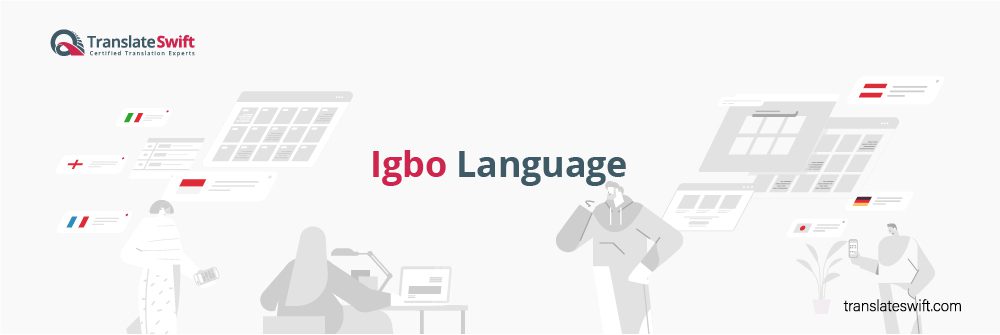
History is a Mystery
Approximately 40 million people across southeastern Nigeria speak Igbo. Most linguists believe the language emerged around the 9th century AD.
Unlike its neighbors that belong to the Afroasiatic family, Igbo boasts a distinct lineage. It stems from the Niger-Congo family, a vast language group suggesting Igbo’s ancient roots lie elsewhere in Africa. Theories suggest Igbo speakers migrated into their current southeastern homeland, bringing their unique language with them.
Evolution and Diversification
Igbo boasts a remarkable collection of around 30 dialects. Standard Igbo, also known as Central Igbo, is a literary and educational dialect based on the Owerri and Umuahia dialects. It is the most widely understood dialect of Igbo.
Most other dialects share a high degree of mutual intelligibility. However, some have diverged more due to geographical separation and historical encounters. For instance, Central Igbo dialects spoken around Enugu might show influences from neighboring Benue-Congo languages like Igala, while Eastern dialects closer to Abia might have traces of contact with Cross River languages. This rich tapestry of dialects reflects the adaptability of Igbo and its role as a bridge between cultures.
Igbo’s Tonal System
Igbo’s tonal system goes beyond just high and low pitches. There are actually four basic tones in Igbo – high level (á), high falling (áá), low level (à), and low rising (àà). For instance, the word “àkwà” with a high level tone means “cloth,” but with a low level tone, it means “ear.” This intricate dance of tones adds a layer of expression and nuance to the language.
Exploring Vocabulary
One fascinating aspect of Igbo vocabulary is its unique vowel system. Unlike English, Igbo boasts a wider range of vowels that be short or long, and even have nasal qualities, adding another layer of complexity and musicality to the language. Imagine open vowels like the “a” in “father” and the “o” in “coat” blending with closed vowels similar to the “ee” sound in “meet” and the “i” sound in “machine.” Igbo even has central vowels, like a shortened “uh” in “but,” and nasal vowels that combine vowel sounds with a nasal resonance similar to the French “en” sound.
Writing System
Igbo, like many languages, has evolved its writing system over time. Before the arrival of Europeans, Igbo people relied on a system of ideograms known as Nsibidi. Nsibidi consisted of symbols that conveyed meaning and was often used for secret communication purposes.
With the arrival of European missionaries in the late 19th century, the Latin alphabet was introduced to write Igbo. The missionaries developed a standardized writing system using the Latin alphabet with additional diacritics to represent Igbo tones and sounds not found in English. This remains the dominant writing system for Igbo today.
Our Translation Services
At TranslateSwift, we understand the power of language to connect cultures. Our certified team of expert linguists, well-versed in the nuances of Igbo, are here to assist you with any translation needs. We offer high-quality translations for all kinds of documents that are accurate and reliable.
Other Languages
- English
- Spanish
- German
- Dutch
- French
- Italian
- Afrikaans
- Albanian
- Amharic
- Arabic
- Armenian
- Azerbaijani
- Basque
- Belarusian
- Bengali
- Bosnian
- Bulgarian
- Cantonese
- Catalan
- Cebuano
- Chichewa
- Chinese - Simplified
- Chinese - Cantonese
- Chinese - Traditional
- Chinese - Mandarin
- Corsican
- Croatian
- Creole
- Czech
- Danish
- Dari
- Esperanto
- Estonian
- Farsi
- Filipino
- Finnish
- Frisian
- Galician
- Georgian
- Greek
- Gujarati
- Haitian Creole
- Hausa
- Hawaiian
- Hebrew
- Hindi
- Hmong
- Hungarian
- Icelandic
- Igbo
- Indonesian
- Irish
- Japanese
- Javanese
- Kannada
- Kazakh
- Khmer
- Korean
- Kurdish
- Kyrgyz
- Lao
- Latin
- Latvian
- Lithuanian
- Luxembourgish
- Macedonian
- Malagasy
- Malay
- Malayalam
- Maltese
- Maori
- Marathi
- Mongolian
- Montenegrin
- Myanmar
- Nepali
- Norwegian
- Odia
- Pashto
- Persian
- Polish
- Portuguese
- Punjabi
- Romanian
- Russian
- Samoan
- Scots Gaelic
- Serbian
- Sesotho
- Shona
- Sindhi
- Sinhala
- Slovak
- Slovenian
- Somali
- Sundanese
- Swahili
- Swedish
- Tajik
- Tagalog
- Tamil
- Telugu
- Thai
- Turkish
- Ukrainian
- Urdu
- Uyghur
- Uzbek
- Vietnamese
- Welsh
- Xhosa
- Yiddish
- Yoruba
- Zulu
